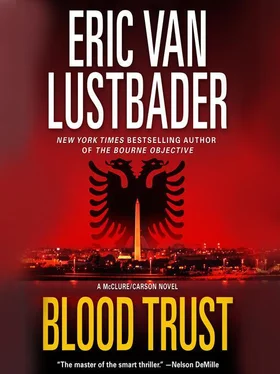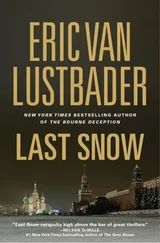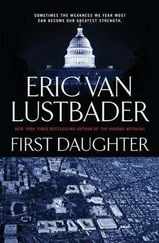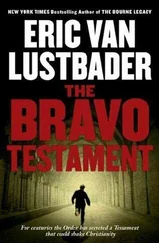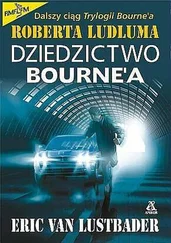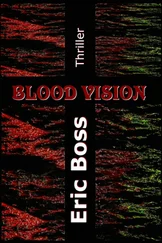“You are English?”
“American,” Alli said. And then, because there was no time and, really, no other way to state it: “There is danger here. These people are bad.”
“I know,” the porcelain girl said.
One of the other girls behind her said, “They are our teachers.”
Alli, hearing the fear in the girl’s voice, thought about Morgan Herr, who had claimed to be her teacher. “Yes, but they’re teaching you only what they want you to know. They’re making sure that when you grow up you’ll be just like them—terrorists, smugglers, and murderers. I’ll take you to a better place, where you’ll be free to make up your own minds about what you want and don’t want.”
There was a brief silence, and Alli decided to concentrate on the porcelain girl.
“My name is Alli Carson.”
“Edon.” The porcelain girl looked into her eyes. “Edon Kraja.”
Arieta’s sister! A thrill of elation and foreboding ran down Alli’s spine.
The rest of the children remained stone-faced. Assessing their continuing hesitation, Alli held up Emma’s iPod. “Michael Jackson. ‘Thriller.’”
A smile split Edon’s face. “Michael Jackson. Really?”
Alli nodded.
“We’re not allowed to listen to Michael Jackson,” Edon said. “No American music.”
“Where I’m going to take you, you can listen to any kind of music you want.”
Fitting the earbuds to the iPod, Alli scrolled down to the track she wanted and pressed Play. She offered the earbuds to the girl, who cringed back until Alli put one of the earbuds in her own ear. When she offered the other one, the girl took it and hesitantly put it into her ear.
Her grin returned. “Michael Jackson,” she said. “‘Thriller.’”
Alli began to mimic the dance in Jackson’s video and, as Edon hesitantly joined her, the other orphans crowded around. Alli passed the earbuds to a couple of the closest kids.
“Okay, Edon, we have to go. Now. You must tell everyone.”
She did as Alli asked. Alli took back the iPod and earbuds as, like an inverted version of the Pied Piper, she led the orphans out of their personal rat-infested Hamelin.
When they were safely away, hidden in shadows of the trees, Edon turned to Alli.
“Thank you,” she said, “from all of us, even the ones too young to yet understand.” She burst into tears.
Alli put her arm around Edon’s shoulders. “That’s all right. You’re free now.”
“Yes, I,” Edon said through her tears. “But my sister Liridona is not.”
* * *
JACK WAS forced to begin his rear-guard action sooner than he had expected. No matter, he had plenty of ammo and convenient cover. He took out three of Xhafa’s guerillas before they fell back, regrouped, and came at him from both sides. Behind him, he could hear the continuous roar of the machine gun. The sound calmed him. Paull had his back.
As the two groups of guerillas began to converge on him, guided by his shots, he crab-walked straight ahead, into a dense copse of trees. Turning around, he fired into their flank, mowing down half of them before they could adjust and return fire. By that time, he had climbed up into one of the trees. Lying out on a thick branch, he brought them into his gun sight, picking them off as they scrambled futilely for cover.
Dropping down, he went from man to man, checking them for breath or pulse. Finding none, he turned back to where Paull was continuing his fusillade. It was then that he felt the cool breath on his cheek.
“Dad.”
He felt death coming from behind him and darted to his right. The knife blade slashed through cloth and skin just above his hip bone. If he hadn’t moved, the thrust would have punctured his liver. Stepping into the attack, he whirled and, cocking his elbow, slammed it into his assailant’s throat. The guerilla staggered back, gasping, and Jack drove the butt of his assault rifle into the man’s nose. Blood and cartilage whipped through the air, and the butt whacked the side of the guerilla’s head so hard his neck snapped.
Leaping over the corpse, he joined Paull just in time to pick up the phone. He listened to Thatë’s voice, cut the connection, and said, “The kids are out.”
Paull did not let up the volleying for even an instant. “You know what to do,” he said.
Jack picked up the shoulder rocket launcher he had previously loaded, took aim at the school through the launcher’s telescopic sight, and yelled, “Fire in the hole!” just before he pressed the trigger.
The night exploded into white light and a tremendous thunderclap that resounded throughout all of Tetovo.
TWENTY-ONE
MIDDLE BAY Bancorp was one of those newly minted powerhouse regional banks that came through the recent CDO and mortgage-backed securities meltdown relatively unscathed. In fact, at the depths of the recession, its prescient CEO, M. Bob Evrette, snapped up three failing regionals for ten cents on the dollar, more or less, in the process making himself both rich and a local hero for saving so many jobs.
There was a price to pay, as there always was: Like many great leaders, M. Bob Evrette was afflicted with hubris. In short, within the space of twenty months, Middle Bay became a victim of its own success. It grew too fast, outstripping not its resources but the expertise of its managers. Evrette had thrust it into the heady arena where the really big boys played, and even he wasn’t up to navigating it.
At that point, perhaps six months ago, Henry Holt Carson had stepped in and made Evrette an offer he couldn’t in all conscience refuse. For one reason or another, Middle Bay had been on Carson’s radar screen for some time. Carson had built his fortune on knowing the right time to make an acquisition and when to sell it. Six months ago Middle Bay was ripe for the plucking. He set up one meeting with Evrette, where the merger with InterPublic Bancorp was proposed, then a dinner, where the deal was struck, and, finally, a weekend at the hunting lodge, where, over a brace of buckshot-riddled ducks, the deal was finalized.
Middle Bay boasted over twenty branches in D.C., Virginia, and Maryland, but its main branch resided at Twentieth and K Streets NW, in a florid building of white granite blocks so massive they’d give even Hercules palpitations.
“I spoke to M. Bob Evrette himself,” Naomi said as they got out of the car and trotted up the steps that rose between two rows of immense Corinthian columns.
“What do you call him, Pete? He’s a friend of yours, right?”
McKinsey laughed and shook his head. “Jesus, give it a rest, would you?”
Beyond the high revolving doors was a massive space clad in marble with wood and brass accents. The ceiling rose to a height of a cathedral’s, and, at this late hour, there was a hush unnatural even for a bank. A bank of tellers’ stations lined the right wall; a phalanx of gleaming ATMs was to their left.
A young man bustled out from behind a waist-high wooden partition. He wore a wasp-waisted suit, a solid-color tie, and a tight smile. His gleaming hair had an old-fashioned part in it. He looked as if he’d just come from the barber’s.
He held out his hand, which was firm and dry. They introduced themselves and he led them back through the gate, past the cubicles where the investment and customer-relations officers normally plied their trade. Pausing at a door just long enough to punch in a six-digit code, he opened it and ushered them down a cool, low-lit hallway, its gleaming mahogany panels speaking of both money and discretion.
“Mr. Evrette is expecting you,” the flunky said unnecessarily.
At the end of the hallway was a wide wooden door upon which the flunky rapped his knuckles.
“Come,” a muffled voice said from within.
Читать дальше
